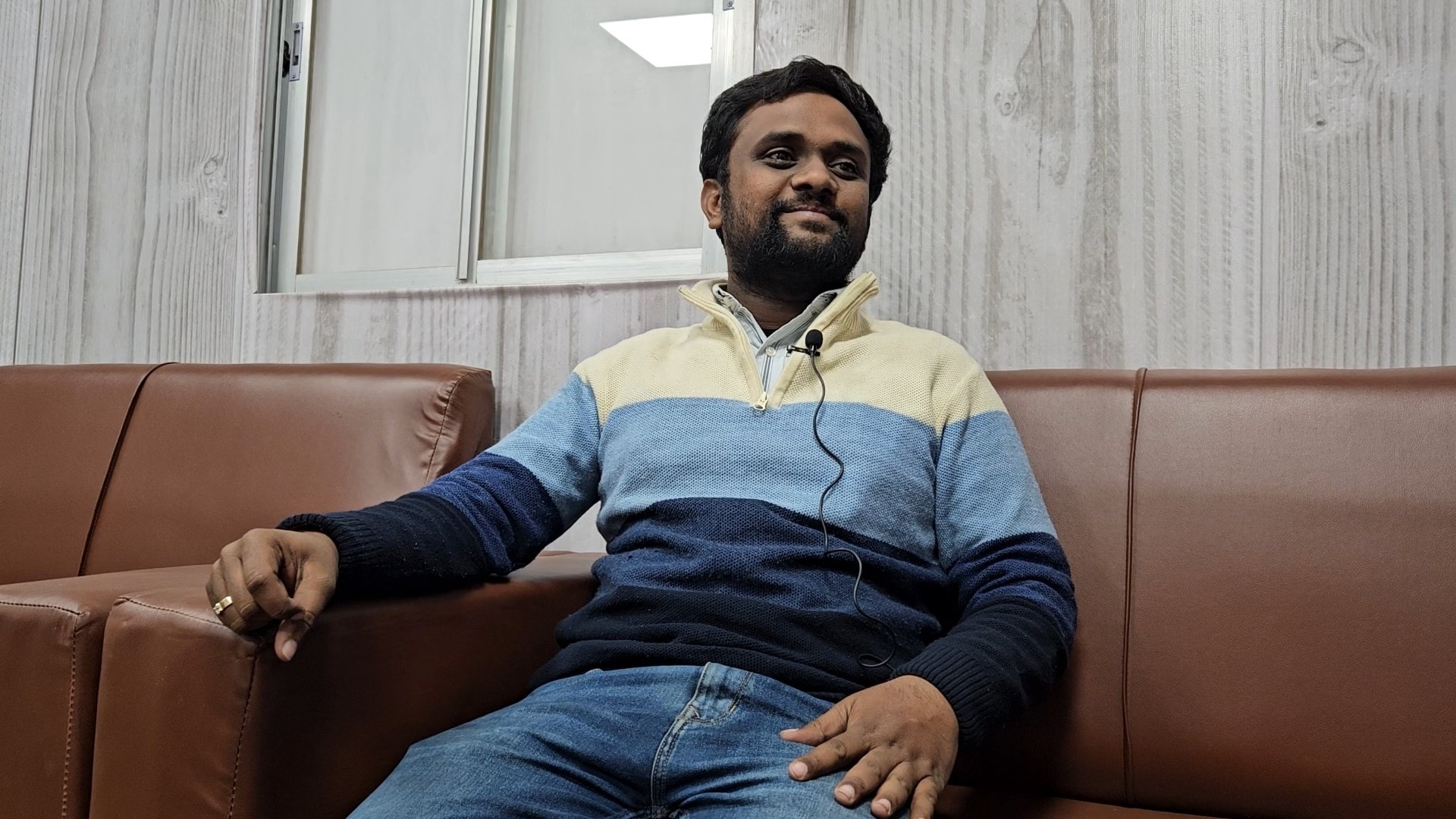
He's a 27-year-old whose phone simply does not stop ringing. Yash Agarwal is the sixth generation of the Lallooji family. It is well known in Uttar Pradesh that a Kumbh Mela simply cannot be organised without the Lallooji family. That is because they operate in a niche segment of the event management industry — tents and temporary accommodation —which is crucial to the Kumbh and which no other event management companies have.
"My grandfather's grandfather started Lallooji tenting business," said Yash, who has the grand designation of vice admiral at Lallooji Gopal Das & Sons. "In 1920, Jawaharlal Nehru invited Lallooji to Delhi to put up tents. Now the family has split the business and there are seven Lallooji companies."
One cannot miss the Lallooji warehouses all over the Maha Kumbh grounds. Men and women sit on the roads, busily stitching tents. Trucks loaded with tin sheets, wooden poles and plywood can be seen offloading their wares here.

Yash Agarwal (Source: NDTV Profit)
"Lallooji's real name is Baidyanath Das Agarwal but his mother called him Lallooji," explains Yash. "He started his tenting business in 1920 when Nehru called him to Delhi to set up tents. Lallooji had five sons — the eldest was called Master saab, Krishan Das, Gulli Baba, Shivgovind Das, Dwarka Das. They had many children and I don't remember all their names. Krishan Das' eldest son was Gopal Das — he was my grandfather. Gopal Das had three sons — Ashok Agarwal, Alok Agarwal and Ajay Agarwal. I am the son of his youngest son Ajay Agarwal."
Lallooji and Sons, which is now run by Ajay and Yash Agarwal, has built 95% of the tents, temporary housing, VIP housing as well as the massive pandals over the 4,000 hectares of the mela area. The other Lallooji businesses, like Lallooji & Brothers and Lallooji Tent House, have a slice of the pie too.
"Our main work is tin sheds and pipe pandals plus tents," says Abhishek Pandey, a supervisor at Lallooji & Brothers, adding that 650 to 800 sansthas were done by them. "There are tents, pipe sheds and pandals in these."
At Lallooji Tent House too, work is being done at a fast clip. "We have got four-five sectors here. We are also taking up sansthas (Hindu religious organisations) who come to us," says Manoj Kumar, Manager at Lallooji Tent House.
This Kumbh, though, is much larger than the ones these companies are used to — both in scale and scope.
"This Mahakumbh has been 3 times in size in terms of everything," says Yash Agarwal. "The government wanted new items in everything this time — for example, we use tin sheets to fence off tent areas. The government wanted new tin sheets for them.."
"Procurement is three times and we have had a really tough time sourcing all the materials. This is a huge, huge Kumbh. And I must appreciate the government for planning all this a year in advance and giving us notice well in advance that it would be this big. In fact, we are still procuring materials even now," he laughs.
Lallooji & Sons has a number of senior employees who have worked with them for over 40 years and have seen many Kumbhs. One such is now a manager at the firm — Prakash Bhartiya — who says that this Kumbh is like none other that he has seen. "Work is happening very fast and this Kumbh is much bigger than other Kumbhs. This time, we can actually feel like we are working for a Kumbh. Such big designs (for pandals) never used to be made," he says.
The Lallooji family may have the lion's share of the tenting projects at the Kumbh. But the trickle-down effect of this mega event is mind-boggling.
"If you look at employment, many people are benefiting," explains Anilesh Mishra, manager at Lallooji & Sons. "The vendors who work with us are giving jobs to a number of people. The sub-vendors beyond them are also employing many. For example, our cloth comes from Rajasthan, tailors from Assam, and the almirahs and cupboards come from other states."
"There are many people who are working on these. It is not just our staff that are working for the Kumbh. The vendor who is sending us the material is also benefiting from the Kumbh. If this mela had not happened, a lot of people would be unemployed."
The Maha Kumbh, for many, is as much about livelihood as faith.
Understanding The Economics Of Kumbh | Watch
Essential Business Intelligence, Continuous LIVE TV, Sharp Market Insights, Practical Personal Finance Advice and Latest Stories — On NDTV Profit.























